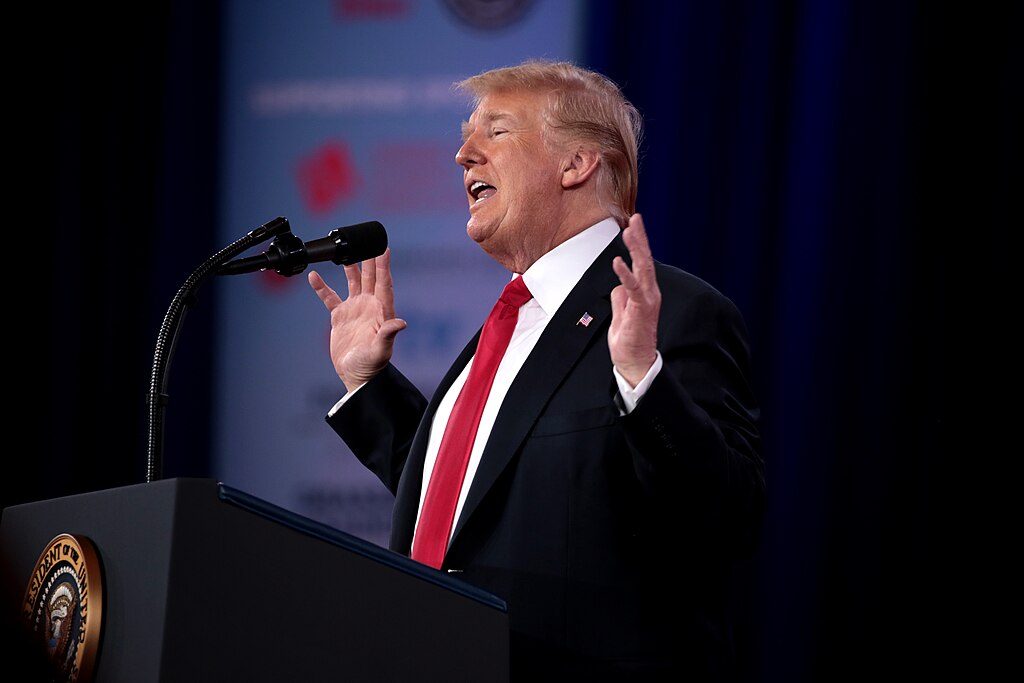Donald Trump’s second term in office has reignited debates over internet censorship and freedom, with the former president unveiling plans to regulate online platforms in 2025. Aiming to combat misinformation and protect national security, Trump’s proposals have drawn both praise and condemnation, highlighting a complex intersection of free speech, government control, and corporate responsibility.
Tightening Oversight of Social Media Platforms
Central to Trump’s plan is increased oversight of major social media platforms. The administration has proposed creating a federal task force to monitor and address what it deems harmful online content. This includes misinformation, cyber threats, and material considered detrimental to public discourse.
Trump has pointed to alleged political bias among tech giants like Twitter, now X, and Meta, accusing them of stifling conservative voices. Under the proposed regulations, platforms may face significant penalties for failing to uphold neutrality or for disseminating content deemed harmful by federal guidelines.
Supporters argue the move is a necessary step to ensure accountability in the digital age. Critics, however, contend that it risks undermining free speech and creating a slippery slope of government overreach. Legal analysts warn that such measures could spark constitutional challenges, particularly concerning First Amendment protections.
Balancing Security and Freedom of Expression
Trump’s policy framework also emphasizes cybersecurity, aiming to fortify the nation against digital threats. Plans include mandating stricter encryption standards and requiring platforms to collaborate with government agencies on threat detection.
While the administration frames these measures as essential to national security, skeptics fear they could lead to mass surveillance. Civil liberties groups have expressed concern about the potential misuse of data collected under the guise of national defense. Balancing security with the fundamental right to freedom of expression remains a contentious challenge.
Public Reactions: Heated Debate Erupts Online
Trump’s internet policies have ignited a storm of opinions across social media, showcasing a divide in public sentiment. Here are some netizens’ takes:
- @FreeSpeechFanatic: “Regulating platforms sounds good until the government starts deciding what we can and can’t say online.”
- @CyberSecAdvocate: “National security is at stake. We can’t afford to ignore the dangers of an unregulated internet.”
- @TruthMatters2025: “Big Tech has had too much power for too long. Maybe this will finally level the playing field.”
- @PrivacyFirst: “This is a dangerous precedent. What happens when the government decides your opinion is misinformation?”
- @NeutralObserver: “Regulation is needed, but it must be done carefully to avoid trampling on basic freedoms.”
- @PatriotNow: “It’s about time someone stood up to Big Tech. Trump’s got the right idea.”



 Israel Launches Fresh Strikes on Iran After Death of Supreme Leader Ayatollah Khamenei
Israel Launches Fresh Strikes on Iran After Death of Supreme Leader Ayatollah Khamenei  Argentina Senate Approves Bill to Lower Age of Criminal Responsibility to 14
Argentina Senate Approves Bill to Lower Age of Criminal Responsibility to 14  Trump Orders Federal Agencies to Halt Use of Anthropic AI Technology
Trump Orders Federal Agencies to Halt Use of Anthropic AI Technology  USITC to Review Impact of Revoking China’s PNTR Status, Potentially Raising Tariffs on Chinese Imports
USITC to Review Impact of Revoking China’s PNTR Status, Potentially Raising Tariffs on Chinese Imports  Trump Media Weighs Truth Social Spin-Off Amid $6B Fusion Energy Pivot
Trump Media Weighs Truth Social Spin-Off Amid $6B Fusion Energy Pivot  Trump Launches Operation Epic Fury: U.S. Strikes on Iran Mark High-Risk Shift in Middle East
Trump Launches Operation Epic Fury: U.S. Strikes on Iran Mark High-Risk Shift in Middle East  NYC Mayor Zohran Mamdani Meets President Trump to Tackle Housing Crisis and ICE Detentions
NYC Mayor Zohran Mamdani Meets President Trump to Tackle Housing Crisis and ICE Detentions  Pentagon Leaders Monitor U.S. Iran Operation from Mar-a-Lago
Pentagon Leaders Monitor U.S. Iran Operation from Mar-a-Lago  Russia Signals Openness to U.S. Security Guarantees for Ukraine at Geneva Peace Talks
Russia Signals Openness to U.S. Security Guarantees for Ukraine at Geneva Peace Talks  U.S.-Israel Strike on Iran Escalates Middle East Conflict, Trump Claims Khamenei Killed
U.S.-Israel Strike on Iran Escalates Middle East Conflict, Trump Claims Khamenei Killed  Netanyahu Suggests Iran’s Supreme Leader Khamenei May Have Been Killed in Israeli-U.S. Strikes
Netanyahu Suggests Iran’s Supreme Leader Khamenei May Have Been Killed in Israeli-U.S. Strikes  Trump Floats “Friendly Takeover” of Cuba as Rubio Reportedly Engages in Talks
Trump Floats “Friendly Takeover” of Cuba as Rubio Reportedly Engages in Talks  Venezuela Oil Exports to Reach $2 Billion Under U.S.-Led Supply Agreement
Venezuela Oil Exports to Reach $2 Billion Under U.S.-Led Supply Agreement  HHS Adds New Members to Vaccine Advisory Panel Amid Legal and Market Uncertainty
HHS Adds New Members to Vaccine Advisory Panel Amid Legal and Market Uncertainty  Macron Urges Emergency UN Security Council Meeting as US-Israel Strikes on Iran Escalate Middle East Tensions
Macron Urges Emergency UN Security Council Meeting as US-Israel Strikes on Iran Escalate Middle East Tensions  Denver Mayor Orders Police to Protect Protesters, Restricts ICE Access to City Property
Denver Mayor Orders Police to Protect Protesters, Restricts ICE Access to City Property  Trump Floats Ted Cruz for Future U.S. Supreme Court Nomination
Trump Floats Ted Cruz for Future U.S. Supreme Court Nomination 
































